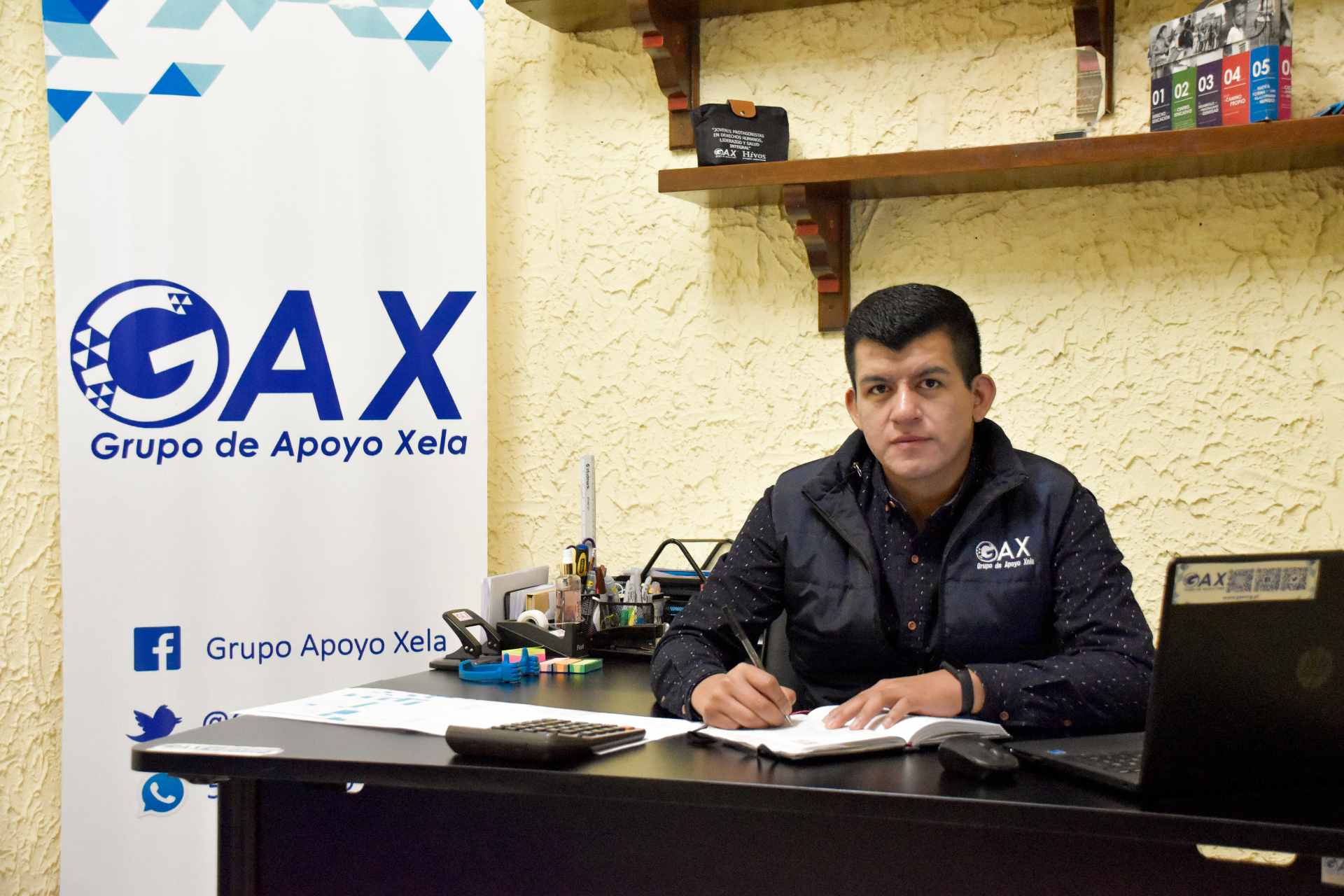By Gabriela Melgar Orellana, Regional Communication Officer
The first time Leonardo Ortega, director of the Guatemalan Support Group in Xela (GAX, in Spanish), heard about open data was in Buenos Aires, Argentina in 2018, when Hivos invited him to attend the open data conference: AbreLatam & ConDatos.
“As an organization, we do evidence-based advocacy. However, for us, evidence meant having everything documented. Not necessarily using open data,” Leo explains. The experience of attending the conference allowed him to open his mind. He learned how data can be used to show progress or challenges in different areas. It was then that he asked himself: ‘Why not apply this newly acquired knowledge to the cause I’m defending in my own country?’ The rights of the LGBITQ+ people.
On IDAHOT Leo has a message: “I extend my solidarity with all LGBTIQ+ people who are suffering stigma and discrimination, and I want to remind you that you are not alone. There are organizations and activists who work for human rights and who are fighting”.
Upon his return to Guatemala, he decided to apply what he had learned at AbreLatam. After a series of workshops organized by Hivos, the idea of creating an open data section within his organization’s website was born. Its purpose was to systematically map violence against the diverse population in the country. But that didn’t happen by itself.

Accessing information
The first challenge was to get the Public Prosecutor’s Office to respond to the request for public information. Leo, along with Daniel de León, an open data consultant who supported the organization in the process, turned to the Law of Access to Public Information. In Guatemala, this law requires all government agencies to provide information to any citizen for monitoring and social auditing purposes.
The first obstacles they encountered were related to timing. In many instances, they either received no response, or the response was very late – even though the law stipulates a maximum of ten working days to respond to a request. Another complicating factor was the way agencies provided the data. Most still used a PDF format or, worse, images, which meant that GAX needed to tabulate and organize the data, and build a database that allowed them to work with it. After months of work, the open data web page was finally launched in October 2020.
This is how we demonstrate that violence against us exists and that we experience it.
Improving official data
In Guatemala, the recording of data related to violence against the LGBTIQ+ population is mainly carried out by civil society organizations. They use data collection as a strategy to gather evidence about the violence faced by the community on a daily basis.
But when it comes to official data – provided by government agencies – there’s a lot of work ahead. Categories of sexual orientation and gender identity were, for example, only recently added to data sets. That, however, doesn’t mean complaint registration forms work with the same categories, nor does it mean that the recorded data is standardized between agencies.
Strengthening the institutions
Leo emphasizes that when a case is filed, public officials do not know how to register diverse people. The National Registry of Persons only uses a binary categorization. “When the sisters of the trans community file a case, they are not properly registered and the people who collect the data do not even know what gender identity or sexual orientation is,” Leo highlights.
That is why the Support Group in Xela began to approach the referral networks of the Public Prosecutor’s Office. The primary intention of this outreach was to make recommendations to improve attention to complaints filed by the LGBTIQ+ community and invite officials of the institution to use and explore the data collected on the support group’s website.
For Leo, there is still a long road ahead. Mapping violence – including how and where it happens – sets a precedent to achieve the necessary changes in legislation and classification of crimes against the LGBTIQ+ population. “If it is not written, we do not exist. If there is no data, we do not exist. This is how we demonstrate that violence against us exists and that we experience it.”

The rewards of GAX’s work
This year, GAX filed a complaint about the election process of the attorney general, against the current attorney general, María Consuelo Porras. “We showed – with evidence – the debt towards the LGBTIQ+ population and prosecutorial backlog of cases that are being closed, dismissed or still under investigation,” stresses Leo.
This action highlighted the ineffectiveness of the Public Prosecutor’s Office in terms of attention and follow-up of cases reported by LGBTIQ+ people. It made a public discussion about legal frameworks and protocols possible. Something still scarce in the country.
Future Steps
Leo wants to achieve structural changes with his work. Forms need to become more inclusive and government agencies should use standardized formats. The collection of information should be adequate and respectful of the sexual orientation and gender identity of all people. Leo hopes that data will continue to improve the living conditions of LGBTIQ+ people. “I dream that we achieve a culture of denunciation because sometimes the community itself normalizes violence. We have to raise our voices to say NO, to denounce that we are being discriminated against or violated.”
On IDAHOT – the International Day Against Homophobia, Transphobia and Biphobia, Leo concludes with a message to the diverse population of Guatemala and the region: “I extend my solidarity with all LGBTIQ+ people who are suffering stigma and discrimination, and I want to remind you that you are not alone. There are organizations and activists who work for human rights and who are fighting”.
Other Open Data Initiatives
The Guate Diversa e Inclusive Program promotes the use of open data in a variety of ways. Last year saw the launch of the vivirsinviolencia.org platform. This website contains databases in open formats that show the records obtained by both the Public Prosecutor’s Office and other government agencies that provide services or assistance to the LGBTIQ+ population, women, and children.
The program’s aim is for LGBTIQ+ people to take ownership of their human rights. For more information you can contact Saira Ortega at sortega@hivos.org.






